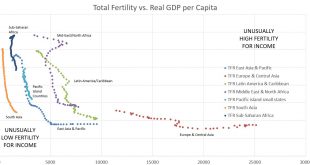Economic reality — a virulent virus afflicting mainstream economics The WHO today warned of a virulent new virus affecting vulnerable groups in the Mid‐West and Eastern USA. The outbreak, which began in the Mid‐West’s extensive Great Lakes “Freshwater” river system, has recently jumped the “Saltwater” barrier, meaning that the entire population of its target species—“Mainstream” economists—is now at risk. Speaking on behalf of the WHO, Dr Cahuc explained...
Read More »In Britain austerity is changing everything
In Britain austerity is changing everything It's time for change. pic.twitter.com/38akCruWjd — Jeremy Corbyn (@jeremycorbyn) October 27, 2018 Advertisements
Read More »IPA’s weekly links
Guest post by Jeff Mosenkis of Innovations for Poverty Action. At IPA even our water spills our normally distributed (or Halloween-themed, depending on your perspective)David McKenzie has updated an amazing list of all of the Development Impact Blog’s methodology posts, categorized by topic.A reminder for the academic interview fly-out season that I’ve seen a few people mention: don’t assume grad students can afford to put travel on their credit cards and wait to be reimbursed; offer to book...
Read More »Wren-Lewis — the flimflam anti-pluralist
Wren-Lewis — the flimflam anti-pluralist Again and again, Oxford professor Simon Wren-Lewis rides out to defend orthodox macroeconomic theory against attacks from heterodox critics. In one of his latest attacks on heterodox economics and students demanding pluralist economics education he writes: The danger in encouraging plurality is that you make it much easier for politicians to select the advice they like, because there is almost certain to be a school...
Read More »Simon Wren-Lewis’ warped view of modern macroeconomics
Simon Wren-Lewis’ warped view of modern macroeconomics There is something that just does not sit very well with Oxford macroeconomist Simon Wren-Lewis’ view of modern macroeconomics. On more than one occasion has this self-proclaimed ‘New Keynesian’ macroeconomist approvingly written about the ‘impressive’ theoretical insights New Classical economics has brought to macroeconomics. In one of his latest blog posts he once again shows how devoted he is to...
Read More »Michael Hudson — life and thought of an MMT’er
Michael Hudson — life and thought of an MMT’er [embedded content] Absolutely fabulous. A must-watch. Advertisements
Read More »Wren-Lewis insults medical science
Wren-Lewis insults medical science In a discussion today on twitter one discussant was questioning if economics really could be considered a science, adding that in physics — contrary to economics — “there are no different school of thoughts on ‘Newton’s Laws of Motion’. To this Simon Wren-Lewis answered: Exactly the same is true of mainstream economics. There are also groups who cannot live with the mainstream who form schools of thought, like MMT. But...
Read More »Why so-called deficits are economic necessities
Why so-called deficits are economic necessities We are not going to get out of the economic doldrums as long as we continue to be obsessed with the unreasoned ideological goal of reducing the so-called deficit. The “deficit” is not an economic sin but an economic necessity. […] The administration is trying to bring the Titanic into harbor with a canoe paddle, while Congress is arguing over whether to use an oar or a paddle, and the Perot’s and budget...
Read More »IPA’s weekly links
Fertility for Income around the world, from Lyman StoneA new report (if you can ignore the overblown headline) looks at the massive Millennium Villages project, promoted by economist Jeffrey Sachs. It spent a *lot* in Ghana (a budget of $27 Million from a variety of sources, including local government and communities) on economic makeovers of selected locales, but did not have an overall effect on poverty, hunger, or many of the other outcomes it set out to improve. Full report here.The...
Read More »Ricardian vice
Ricardo’s … interest was in the clear-cut result of direct, practical significance. In order to get this he cut that general system to pieces, bundled up as large parts of it as possible, and put them in cold storage — so that as many things as possible should be frozen and ‘given.’ He then piled one simplifying assumption upon another until, having really settled everything by theses assumptions, he was left with only a few aggregative variables between which, he set up...
Read More » Heterodox
Heterodox







